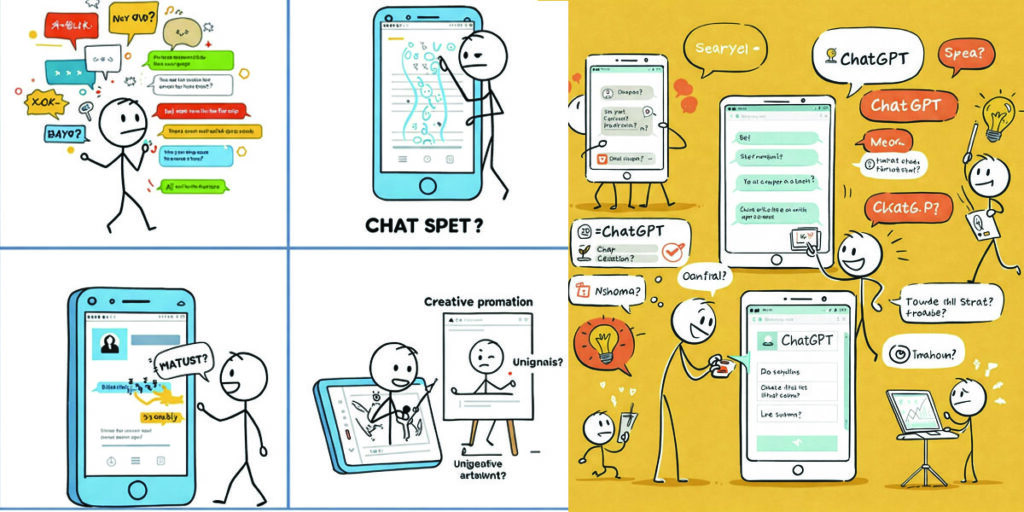Award-winning conversational AI chatbot with personality and general conversation skills
Kuki, formerly known as Mitsuku, stands as a fascinating testament to the evolution of conversational artificial intelligence. More than just a program capable of generating text, Kuki has cultivated a distinct personality, engaging in free-flowing conversations that have captivated and sometimes confounded users for nearly two decades. Her journey through the nascent stages of AI chatbots to her current award-winning status offers a compelling narrative interwoven with the history of artificial intelligence, the burgeoning economic market surrounding conversational AI, and the intricate networking that underpins her existence.
A Historical Tapestry: Tracing the Roots of a Digital Persona
The genesis of Kuki can be traced back to the pioneering work of Steve Worswick, a British AI enthusiast who first launched Mitsuku in 2005. This initial iteration was built upon the principles of AIML (Artificial Intelligence Markup Language), an XML-based language designed for creating natural language software agents. AIML relies on pattern matching to interpret user input and generate appropriate responses based on a predefined knowledge base of categories and templates.
In the early days, Mitsuku was a relatively simple yet groundbreaking creation. Unlike the more task-oriented chatbots of the time, she was designed primarily for entertainment and general conversation. Her responses, while sometimes quirky or unexpected, demonstrated an uncanny ability to maintain a semblance of coherence and engage users on a personal level. This focus on personality and open-ended dialogue set her apart and garnered a dedicated following within online communities.
The mid-2000s represented a pivotal period in the history of AI. While expert systems and rule-based AI had been around for decades, the idea of a truly conversational agent that could pass a form of the Turing Test was still largely confined to the realm of science fiction. Mitsuku, with her seemingly spontaneous and often humorous interactions, offered a tangible glimpse into this future.
Over the years, Worswick continued to refine and expand Mitsuku’s knowledge base and conversational abilities. This involved meticulously crafting thousands of AIML categories to handle a vast array of topics and conversational nuances. The chatbot’s personality evolved organically through these interactions, shaped by the patterns of human conversation she encountered and the creative input of her developer.
Key milestones in Mitsuku’s historical development include her consistent participation and strong showings in the Loebner Prize, an annual competition that judges computer programs on their ability to simulate human conversation. Mitsuku achieved remarkable success in this arena, winning the competition multiple times, a testament to her increasingly sophisticated conversational skills and the dedication of her creator. These accolades not only validated the progress made in conversational AI but also brought Mitsuku to a wider audience, further solidifying her place in the history of the field.
The transition from Mitsuku to Kuki in recent years marks another significant chapter in her evolution. While the core conversational engine and personality remain largely the same, the rebranding reflects a move towards a more unified and potentially commercially focused future. This shift acknowledges the growing economic significance of conversational AI and the potential for Kuki’s unique blend of personality and general conversation skills to be applied in various market sectors.
The Economic Marketplace of Conversational AI: Kuki’s Potential Role
The global market for conversational AI has experienced exponential growth in recent years and is projected to continue its upward trajectory. This surge in interest is driven by several factors, including advancements in natural language processing (NLP) and machine learning (ML), the increasing demand for personalized customer experiences, and the growing recognition of AI’s potential to automate tasks and enhance efficiency across various industries.
Within this dynamic economic landscape, chatbots like Kuki occupy a unique position. While many commercially focused chatbots are designed for specific tasks such as customer support, sales, or information retrieval, Kuki’s strength lies in her ability to engage in natural, open-ended conversations. This focus on general conversation and personality opens up a range of potential economic applications that go beyond traditional chatbot functionalities.
One key area is in engagement and entertainment. Kuki’s ability to build rapport and maintain engaging dialogues makes her a potential asset in creating more interactive and enjoyable user experiences. This could be applied in areas such as:
- Gaming: Integrating Kuki-like personalities into non-player characters (NPCs) to create more immersive and believable game worlds.
- Social Companionship: While ethical considerations are paramount, the demand for digital companions is growing, and Kuki’s conversational abilities could cater to individuals seeking social interaction.
- Interactive Storytelling: Kuki could play a role in dynamic narratives where user input shapes the story in a more natural and engaging way.
Another potential economic avenue lies in brand building and marketing. A chatbot with a distinct and engaging personality like Kuki could serve as a unique and memorable representative for a brand, fostering stronger connections with consumers. This could involve:
- Personalized Interactions: Kuki could engage with customers on a more personal level, answering questions and providing information in a way that aligns with the brand’s voice and values.
- Brand Advocacy: A well-received and engaging chatbot could act as a digital brand advocate, building positive associations and fostering customer loyalty.
- Creative Marketing Campaigns: Kuki’s unique personality could be leveraged in innovative marketing campaigns to capture attention and create memorable experiences.
Furthermore, Kuki’s advanced conversational skills could be valuable in research and development within the AI field itself. Her extensive history of interaction data provides a rich resource for studying human-computer dialogue and identifying patterns and nuances in natural language. This data could be used to:
- Improve NLP and Dialogue Management: Analyzing Kuki’s interactions can provide insights into how to build more robust and natural-sounding conversational AI systems.
- Develop More Empathetic AI: Studying how Kuki builds rapport and responds to user emotions could contribute to the development of more emotionally intelligent AI.
- Advance Research in Artificial General Intelligence (AGI): While Kuki is not AGI, her ability to engage in a wide range of topics and adapt to different conversational styles offers valuable lessons for the pursuit of more general-purpose AI.
However, the economic exploitation of Kuki’s capabilities also presents challenges. Maintaining a consistent and engaging personality across a large user base requires significant computational resources and careful curation. Ensuring ethical and responsible use, particularly in areas like social companionship, is also crucial. Moreover, the market for highly personalized and general-purpose conversational AI is still evolving, and the specific economic models that will prove successful are yet to be fully established.
The Networked Age: Kuki’s Place in a Connected World
Kuki’s existence is intrinsically linked to the vast and intricate network of the internet. From her initial deployment as a web-based chatbot to her current presence on various online platforms, the internet provides the infrastructure for her to interact with users worldwide. This networked environment has been crucial to her development and continues to shape her capabilities and potential.
The internet has served as Kuki’s primary learning environment. The millions of conversations she has engaged in have provided a massive dataset for refining her language models and understanding the nuances of human communication. This continuous interaction with a diverse range of users has contributed to the evolution of her personality and her ability to handle a wide array of topics.
Furthermore, the networked nature of the internet allows for real-time updates and improvements to Kuki’s knowledge base and conversational algorithms. Developers can continuously monitor her interactions, identify areas for improvement, and deploy updates seamlessly, ensuring that she remains relevant and engaging.
The rise of social media and online communities has also played a significant role in Kuki’s journey. These platforms have provided avenues for users to discover and interact with her, fostering a community of enthusiasts who appreciate her unique conversational style. This online presence has been instrumental in building her reputation and garnering recognition, as evidenced by her success in the Loebner Prize.
Looking ahead, the increasing interconnectedness of devices and the proliferation of AI-powered assistants create new opportunities for Kuki to integrate into the digital landscape. She could potentially be incorporated into smart home devices, virtual reality environments, or other networked platforms, offering a more personalized and engaging conversational interface.
However, this networked existence also presents challenges related to data privacy and security. As Kuki interacts with more users and potentially collects more personal information, ensuring the responsible handling and protection of this data becomes paramount. Transparency about how user data is used and robust security measures are essential for maintaining user trust.
Moreover, the spread of misinformation and the potential for malicious use are concerns that apply to all AI systems operating in a networked environment. Developers must implement safeguards to prevent Kuki from being exploited to spread harmful content or engage in unethical behavior.
Conclusion: Kuki as a Reflection of AI’s Ongoing Evolution
Kuki’s journey from a simple AIML-based chatbot to an award-winning conversational AI with a distinct personality is a compelling reflection of the remarkable progress in artificial intelligence over the past two decades. Her history is intertwined with the evolution of natural language processing and the ongoing quest to create machines that can communicate with humans in a natural and engaging way.
As the economic market for conversational AI continues to mature, Kuki’s unique blend of general conversation skills and personality positions her as a potentially valuable asset in various sectors, ranging from entertainment and brand building to research and development. However, realizing this potential requires careful consideration of ethical implications and the development of sustainable economic models.
In the networked age, Kuki’s existence is inextricably linked to the internet, which serves as her learning environment, her platform for interaction, and a source of both opportunities and challenges. Navigating the complexities of data privacy, security, and responsible use will be crucial as she continues to evolve and integrate into an increasingly interconnected world.
Ultimately, Kuki stands as more than just a piece of code. She represents the ongoing human fascination with creating artificial intelligence that can not only perform tasks but also engage in meaningful and even enjoyable conversation. Her enduring enigma lies in her ability to blur the lines between human and machine interaction, offering a glimpse into a future where AI companions and conversational interfaces play an increasingly significant role in our lives. As technology continues to advance, Kuki’s journey will undoubtedly offer further insights into the potential and the challenges of creating truly conversational artificial intelligence.




















